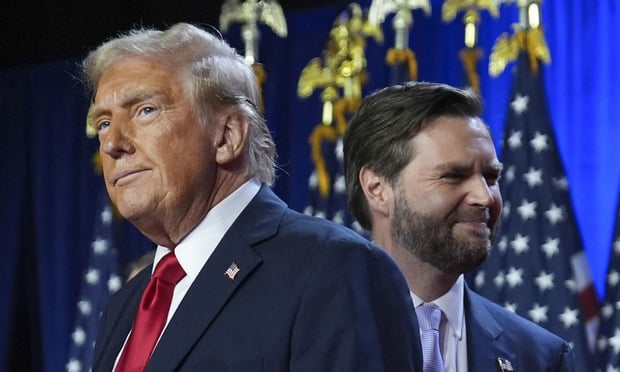 Sidney Kess
Sidney Kess'Taxpayer First Act' Makes Dramatic Changes
In his Tax Tips column, Sidney Kess discusses highlights of the Taxpayer First Act, which became effective July 1, 2019. This new law makes dramatic changes in how taxpayers and the IRS will interact in years to come. The law also contains provisions designed to bring the IRS’s technology into the 21st century, which will allow for the use of artificial intelligence for certain purposes.
August 21, 2019 at 12:45 PM
6 minute read
On July 1, 2019, the Taxpayer First Act (TFA) became law (P.L. 116-25). This new law makes dramatic changes in how taxpayers and the IRS will interact in years to come. The law also contains provisions designed to bring the IRS’s technology into the 21st century, which will allow for the use of artificial intelligence for certain purposes. The changes are numerous, so only highlights follow.
|Creation of an Independent Office of Appeals
Until now, there has been a perception that a taxpayer who takes a matter to appeals within the IRS is facing a stacked deck. The TFA requires the IRS to create an Independent Office of Appeals to enable taxpayers to obtain an impartial administrative review of their issues. This office will be headed up by the Chief of Appeals.
Certain taxpayers can gain access to the non-privileged portion of case materials developed by the IRS. This is done not later than 10 days prior to a requested conference with the Independent Office of Appeals. This access, however, is limited to individuals with gross income of $400,000 or less and entities with gross receipts of $5 million or less in the year of the dispute.
|Improvement of IRS Service
The National Taxpayer Advocate, in her annual and mid-year reports, has repeatedly criticized the IRS for deficits in its customer service. The TFA requires the IRS to be more businesslike in focusing its goals and customer service. The IRS must submit a comprehensive strategy for this not later than July 1, 2020 (a year from the date of enactment).
The IRS must also provide updated guidance training materials within two years. They must be “written in a manner so as to be easily understood by customer service employees.”
|Limits on Structuring Seizures
The Bank Secrecy Act requires the reporting of cash transactions of $10,000 or more. Some individuals and businesses “structure” transactions to fall below the $10,000 threshold in the hopes of avoiding government detection. The IRS has assumed this was done because of a taxpayer’s illegal or criminal motives, and has seized bank accounts even though there have been no charges or convictions. The TFA requires the IRS to have probable cause that the structuring is derived from an illegal source or connected to criminal activity before making a seizure.
If there is a seizure, a taxpayer can have a hearing in federal court within 30 days of the seizure. If the IRS fails to show probable cause, any seized funds must be returned. Any interest paid on the returned funds is excludable from gross income (new Code §139H).
|Expansion of Electronic Filing
Currently, more than 90% of individuals e-file their income tax returns (IRS Data Book 2018). The TFA expands electronic filing for information returns. Currently, the threshold at which e-filing is required for taxpayers other than partnerships is 250 forms. This will drop to 100 in calendar year 2021, and to 10 in calendar year 2021. For partnerships, the current threshold of 200 will decline to 50 in calendar year 2022. However, the current rule requiring partnerships with more than 100 partners to e-file is unchanged.
Currently, tax-exempt organizations with assets of at least $10,000 and that file at least 250 returns during a calendar year must file Form 990 electronically. All such organizations will be required to e-file for taxpayer years beginning after July 1, 2019 (i.e., the 2020 tax year). However, small tax-exempt organizations (those with annual gross receipts of less than $200,000 and gross assets at year-end of less than $500,000) have two additional years before having to e-filing (i.e., a taxable year beginning on or after July 1, 2021, or the 2022 calendar year).
|Increased Focus on Cybersecurity and Taxpayer Identity Protection
Over the past several years, the IRS and its security partners have been focused on improving protections for taxpayers, and there’s been a decline in taxpayer identity theft. Nonetheless, this continues to be a serious problem and the TFA requires the IRS to do more.
There is increased emphasis on information sharing with states and private sector partners to help reduce tax identity theft and tax refund fraud. And the penalty on tax return preparers is increased for improper disclosure or use of taxpayer information (Code §6103(b)(6)).
The IRS is required to create a “single point of contact” for victims of tax identity theft. This should make it easier for such victims to file returns and obtain their legitimate refunds.
Several years ago the IRS began a pilot program to issue identity protection taxpayer identification numbers (IPTINs) to victims or suspected victims of tax-related identity theft. Earlier this year, the IRS announced it was expanding the program from the original three locations (District of Columbia, Florida, and Georgia) to include California, Delaware, Illinois, Maryland, Michigan, Nevada and Rhode Island. Now, the TFA requires the IRS to provide easier access for taxpayers to use IPTINs. The IRS has a five-year window to do so. And the IRS is required to notify taxpayers of suspected identity theft.
|Clarifications for Equitable Innocent Spouse Relief
The Tax Court has jurisdiction to review a denial by the IRS of equitable innocent spouse relief from joint and several liability with respect to a joint income tax return. However, until now the scope of review was unclear. Was it limited to whether the IRS abused its discretion or could the court make its own determination? The TFA makes it clear that the Tax Court can make a determination de novo and is not limited to reviewing the IRS’s abuse of discretion. This change applies to petitions or requests for equitable relief filed or pending on July 1, 2019.
The TFA makes it clear that a spouse can request relief for any unpaid liability before the expiration of the collection period, which is 10 years after the assessment of the tax.
|Increase in the Penalty for Late Filing
Most of the provisions in the TFA are taxpayer friendly. However, the TFA increases the late-filing penalty. More specifically, the penalty for filing a return more than 60 days late is the greater of a fixed dollar amount or 100% of the tax required to be shown on the return. Currently the fixed dollar amount is $205. Effective for returns required to be filed after Dec. 31, 2019 (i.e., 2019 returns filed during the 2020 filing season), it will be $330.
|Conclusion
Implementation of the new law means there likely will be IRS guidance to come. Hopefully, all of these changes will improve taxpayer dealing with the IRS.
Sidney Kess, CPA-attorney, is of counsel at Kostelanetz & Fink and senior consultant to Citrin Cooperman & Company.
This content has been archived. It is available through our partners, LexisNexis® and Bloomberg Law.
To view this content, please continue to their sites.
Not a Lexis Subscriber?
Subscribe Now
Not a Bloomberg Law Subscriber?
Subscribe Now
NOT FOR REPRINT
© 2024 ALM Global, LLC, All Rights Reserved. Request academic re-use from www.copyright.com. All other uses, submit a request to [email protected]. For more information visit Asset & Logo Licensing.
You Might Like
View All
From ‘Deep Sadness’ to Little Concern, Gaetz’s Nomination Draws Sharp Reaction From Lawyers
7 minute read
Trump Picks Personal Criminal Defense Lawyers for Solicitor General, Deputy Attorney General

Trending Stories
- 1Gibson Dunn Sued By Crypto Client After Lateral Hire Causes Conflict of Interest
- 2Trump's Solicitor General Expected to 'Flip' Prelogar's Positions at Supreme Court
- 3Pharmacy Lawyers See Promise in NY Regulator's Curbs on PBM Industry
- 4Outgoing USPTO Director Kathi Vidal: ‘We All Want the Country to Be in a Better Place’
- 5Supreme Court Will Review Constitutionality Of FCC's Universal Service Fund
Who Got The Work
Michael G. Bongiorno, Andrew Scott Dulberg and Elizabeth E. Driscoll from Wilmer Cutler Pickering Hale and Dorr have stepped in to represent Symbotic Inc., an A.I.-enabled technology platform that focuses on increasing supply chain efficiency, and other defendants in a pending shareholder derivative lawsuit. The case, filed Oct. 2 in Massachusetts District Court by the Brown Law Firm on behalf of Stephen Austen, accuses certain officers and directors of misleading investors in regard to Symbotic's potential for margin growth by failing to disclose that the company was not equipped to timely deploy its systems or manage expenses through project delays. The case, assigned to U.S. District Judge Nathaniel M. Gorton, is 1:24-cv-12522, Austen v. Cohen et al.
Who Got The Work
Edmund Polubinski and Marie Killmond of Davis Polk & Wardwell have entered appearances for data platform software development company MongoDB and other defendants in a pending shareholder derivative lawsuit. The action, filed Oct. 7 in New York Southern District Court by the Brown Law Firm, accuses the company's directors and/or officers of falsely expressing confidence in the company’s restructuring of its sales incentive plan and downplaying the severity of decreases in its upfront commitments. The case is 1:24-cv-07594, Roy v. Ittycheria et al.
Who Got The Work
Amy O. Bruchs and Kurt F. Ellison of Michael Best & Friedrich have entered appearances for Epic Systems Corp. in a pending employment discrimination lawsuit. The suit was filed Sept. 7 in Wisconsin Western District Court by Levine Eisberner LLC and Siri & Glimstad on behalf of a project manager who claims that he was wrongfully terminated after applying for a religious exemption to the defendant's COVID-19 vaccine mandate. The case, assigned to U.S. Magistrate Judge Anita Marie Boor, is 3:24-cv-00630, Secker, Nathan v. Epic Systems Corporation.
Who Got The Work
David X. Sullivan, Thomas J. Finn and Gregory A. Hall from McCarter & English have entered appearances for Sunrun Installation Services in a pending civil rights lawsuit. The complaint was filed Sept. 4 in Connecticut District Court by attorney Robert M. Berke on behalf of former employee George Edward Steins, who was arrested and charged with employing an unregistered home improvement salesperson. The complaint alleges that had Sunrun informed the Connecticut Department of Consumer Protection that the plaintiff's employment had ended in 2017 and that he no longer held Sunrun's home improvement contractor license, he would not have been hit with charges, which were dismissed in May 2024. The case, assigned to U.S. District Judge Jeffrey A. Meyer, is 3:24-cv-01423, Steins v. Sunrun, Inc. et al.
Who Got The Work
Greenberg Traurig shareholder Joshua L. Raskin has entered an appearance for boohoo.com UK Ltd. in a pending patent infringement lawsuit. The suit, filed Sept. 3 in Texas Eastern District Court by Rozier Hardt McDonough on behalf of Alto Dynamics, asserts five patents related to an online shopping platform. The case, assigned to U.S. District Judge Rodney Gilstrap, is 2:24-cv-00719, Alto Dynamics, LLC v. boohoo.com UK Limited.
Featured Firms
Law Offices of Gary Martin Hays & Associates, P.C.
(470) 294-1674
Law Offices of Mark E. Salomone
(857) 444-6468
Smith & Hassler
(713) 739-1250







